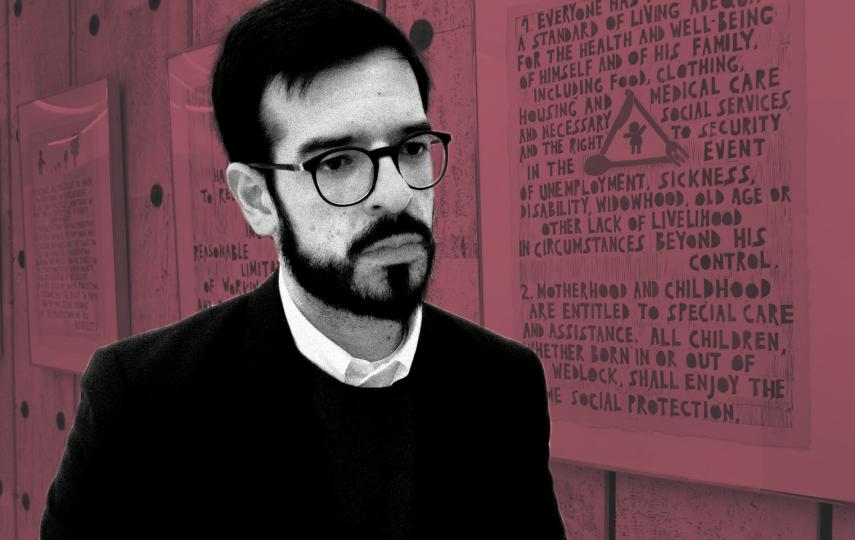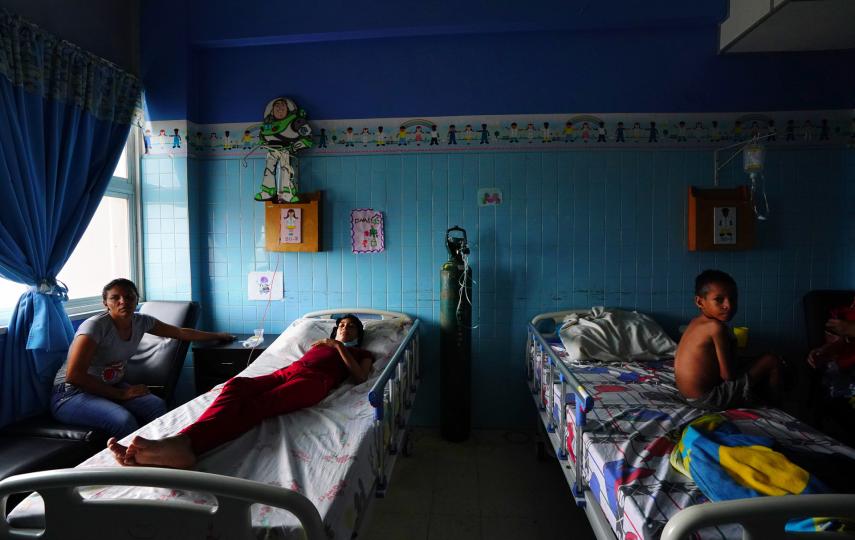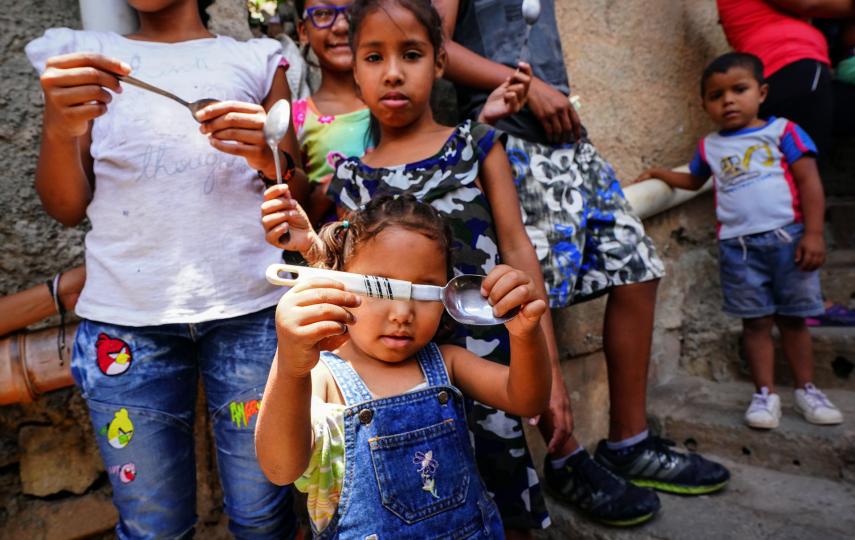“Where’s the future? I don’t see it. Am I blind or am I dead?” Venezuelan music aficionados might recognise these lyrics, but everyone in the country – regardless if they know the song or not – will identify with that pervasive feeling of uncertainty and hopelessness.
My hometown of Maracaibo is a degraded city in a degraded nation. With a population of over 1.5 million (the exact number is unknown due to massive outward migration and the lack of official data), it is Venezuela’s second city and the capital of Zulia state – once the country’s financial powerhouse, leading its mighty oil production and also hugely important for agriculture and livestock.
Geographically blessed due to its natural bounties, geography only seems to be adding nowadays to Maracaibo’s weaknesses and decay. Venezuela’s public services are in a terrible way, and the farther you are from the centrally located capital, Caracas, the worse it is. States like Zulia, in the far west, are getting the short end of what is already an extremely short stick.
Since 2015, more than six million Venezuelans have fled the country in search of better lives, including many teachers and healthcare workers. While the government stopped publishing health data, there are alarming reports of childhood malnutrition, and of the re-emergence of vaccine-preventable diseases due to the shortages of medicine and unsanitary conditions.
Venezuela’s economic outlook is showing some signs of recovery, but when this might translate into any tangible improvements in places like Maracaibo, where chronic shortages of gasoline, electricity, and water have obliterated any sense of normalcy, is anyone’s guess.
Nicolás Maduro’s government increased the minimum wage recently to what would be the equivalent of $30 a month, a huge improvement from the less than $2 it had been for a long time. But the basic monthly food basket for a family’s nourishment is nearly $500, so $30 dollars can’t sustain one person for a week let alone a whole family for a month.
Gas
A fixture these days in Maracaibo is the petrol queue. No matter where you are in the city, you don’t have to go far to come across long lines of cars, coming from and going nowhere. And when I say long lines, I mean several kilometres long, at every hour of any given day.
Those cars and the people in them are waiting for gas – expressing the same kind of anxiety a drug addict does as they desperately wait for their dealer, not knowing how long it will be until their next fix.
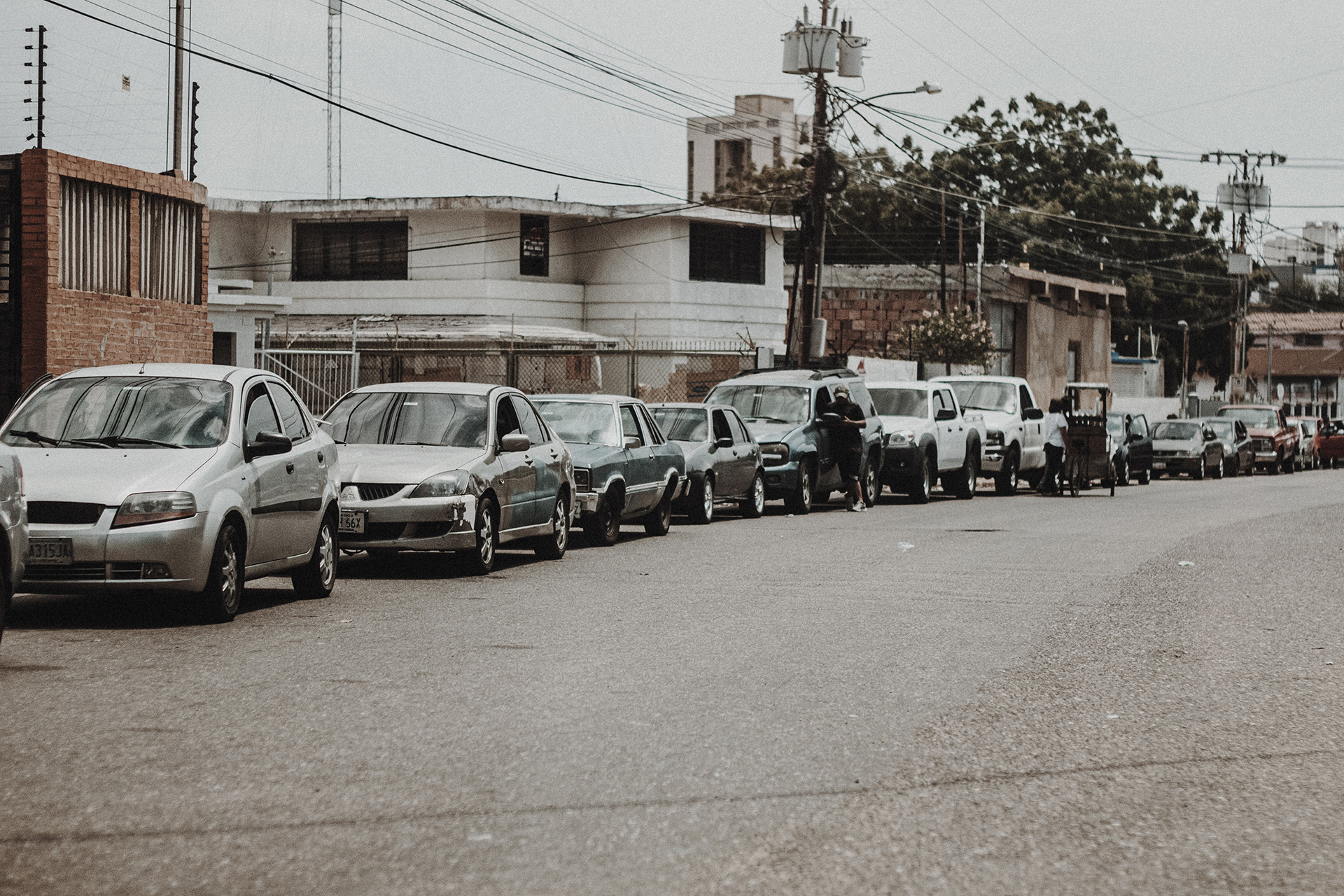
How can it be, you may well ask, that citizens in the main oil producing state in the country with the largest proven oil reserves in the world are struggling to get just the minimum amount of gas so that their lives can function?
The simple answer is that years of corruption and mismanagement of PDVSA, the state-run oil company, severely aggravated by US sanctions, has left the sector in a shambles.
The effects on ordinary people in Maracaibo have been drastic. In a city where public transportation has never been optimal, car owners and their families have become hugely dependent on their vehicles.
Gas shortages – on top of long government lockdowns to control the spread of COVID-19 – have aggravated existing economic disparities. The bottom line: More people are unable to get to work or find any worthwhile employment; and more families sink into or further into poverty. A recent survey found that nearly 95 percent of the Venezuelan population is considered poor while 76.7 percent lives in extreme poverty.
Filling up your car takes at least 24 hours – from planning which station to try your luck at, to actually getting there, waiting, and finally (hopefully) being supplied. It’s an effort that leaves everyone exhausted, and can often end in disappointment.
Because only limited amounts of gasoline are delivered in each scarce truckload, the National Guard, a branch of Venezuela’s armed forces, marks the cars in line. If they say there will be gas available for, let’s say 300 cars, and you’re the 301st in line, you’re just plain out of luck – but that’s something you won’t find out until you’ve already waited in line for several hours.
I don’t have a car. I don’t really want one either. But because I’m an avid runner, I live with these long lines every day. In fact, they make me feel a bit safer, because no matter how early in the morning I run, the streets never feel empty. However, running past, I certainly feel the frustration of the hundreds of people sleeping in their cars one behind the other.
This mad situation has spawned a whole new financial ecosystem. People who live in areas close to gas stations will “save spots” for you for five dollars so that your car starts closer to the finish line. Coffee and cheap breakfasts are sold by peddlers on bicycles. Bakeries and restaurants, just by sheer geographical luck, improve their sales due to having so many people in the same place for so many hours. But the queues often change trajectories, meaning the businesses that were benefiting suddenly find themselves struggling again.
The only real winners are the army, or the National Guard. They control everything, from the lines to the actual selection of which cars get to the pumped gas. For a fee, they will spare you the long queue and ensure a more manageable wait in one of their “VIP lines”.
It takes an average of $20 to fill the tank, but that's without the five dollars for someone to save you a spot, and no VIP line, and no coffee or food for endurance, or anything else to ease the pain. Saying you need $20 to fill the tank of your car seems like a good moment to remind everyone that the minimum wage is around $30 a month.
Electricity
Electricity in Venezuela is state-run and absolutely free, but that’s not much good if there isn’t any.
Venezuela’s electricity grid was in severe trouble way before the oil industry collapsed. I clearly remember that the main thought I had at the start of the Brazil 2014 World Cup was, “there better not be any blackouts”, which shows it has been problematic for a while.
But in March 2019, the whole of Venezuela went dark for a week when the electricity grid for the entire country shut down. Things have never been the same since.
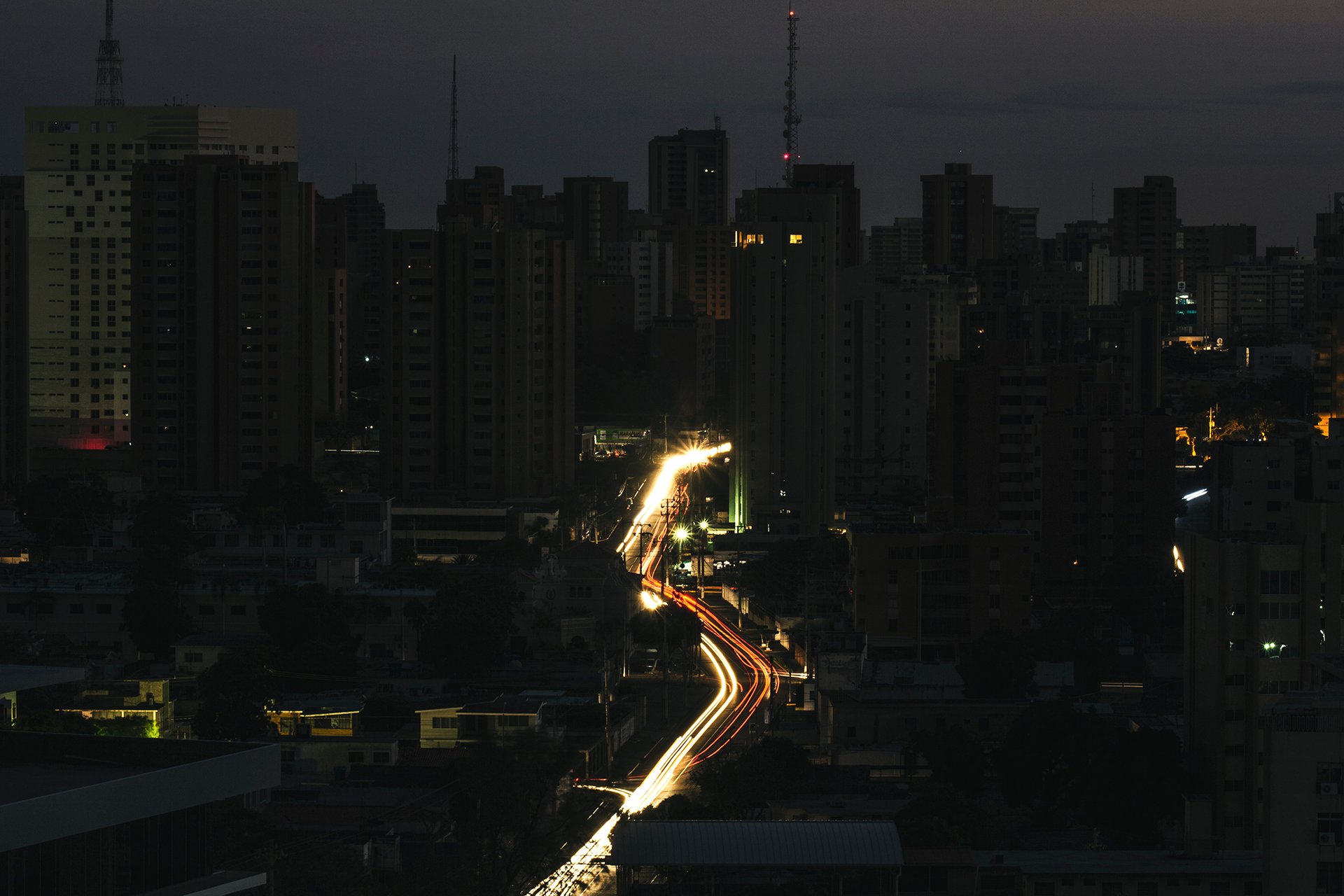
The effects were so widespread that even the de facto dollarisation of the country can be traced back to that moment – suddenly no one could pay for goods because every payment system had collapsed due to the massive power failure.
Three years on, electricity shortages remain critical, and deadly. According to a survey endorsed by the National Academy of Medicine, 233 people died in hospitals between 2019 and 2021 due to power shortages. People in Zulia and several other states still live under the constant fear of blackouts. Maracaibo is so hot and humid all year long that air conditioning is not a luxury but a necessity.
The psychological damage of uncertainty has turned into a tyranny of habit. It’s like playing Russian roulette, but with a bullet in every chamber.
The current situation in Maracaibo sees most areas enduring daily blackouts that last between three and six hours, sometimes twice a day. Everyone knows they are going to be hit by it, but nobody knows when or for how long. That right there might be the hardest part. The psychological damage of uncertainty has turned into a tyranny of habit. It’s like playing Russian roulette, but with a bullet in every chamber.
If you’re suddenly without electricity in the middle of night, it won’t be long before the heat, sweat, and insects refuse to let you rest, which means you’ll be in poor shape in the morning. It’s impossible to get your bearings until you rest, but by then you’ll probably be in the middle of another blackout.
Since the national grid went down in 2019, many people have invested in some sort of power generator. Most work on gasoline, and the gasoline, oh well, you know how that goes. Unless you have serious money, you still have to suffer the blackouts, and most of these generators just end up occupying space as symbolic relics of past hope.
On a recent visit to Valle Frio, a low-income part of the city, I spoke with Janeth Castillo. She was telling me about her everyday struggles when suddenly there was a blackout.
Hillary, her six-year-old grandaughter immediately screamed “MALDITO MADURO”, which roughly translates to “fuckin’ Maduro”. The expression has become commonplace in the country. I found it extremely funny and extremely sad at the same time.
Maduro’s government appears to have spent more time accusing opponents – without evidence – of sabotaging the power system than coming up with any concrete solutions.
Water
Before the blackout in Valle Frío, Castillo also told me about the struggle for water. The city’s water pipes are dry most of the time – most people receive water no more than once a week. If you don’t have a proper way to store it, that’s clearly a major problem.
During the first two months of 2022, only 27,1 percent of the country received water through pipes every day, according to the Venezuelan Observatory of Public Services (OVSS). The local NGO ranked Maracaibo as the city that buys the most water from private vendors, with 48.7 percent of the population paying for deliveries to satisfy their demand. A water truck delivery, depending on the size, costs between $25 and $50. Again, this seems like a good moment to remind everyone of the $30-a-month minimum wage.
These trucks drive at full speed through the city for fear of being intercepted and robbed by criminals or people desperate for water. Between these trucks and cars rushing to get prime spots in gas station lines, Maracaibo can sometimes feel like an episode of Wacky Races.
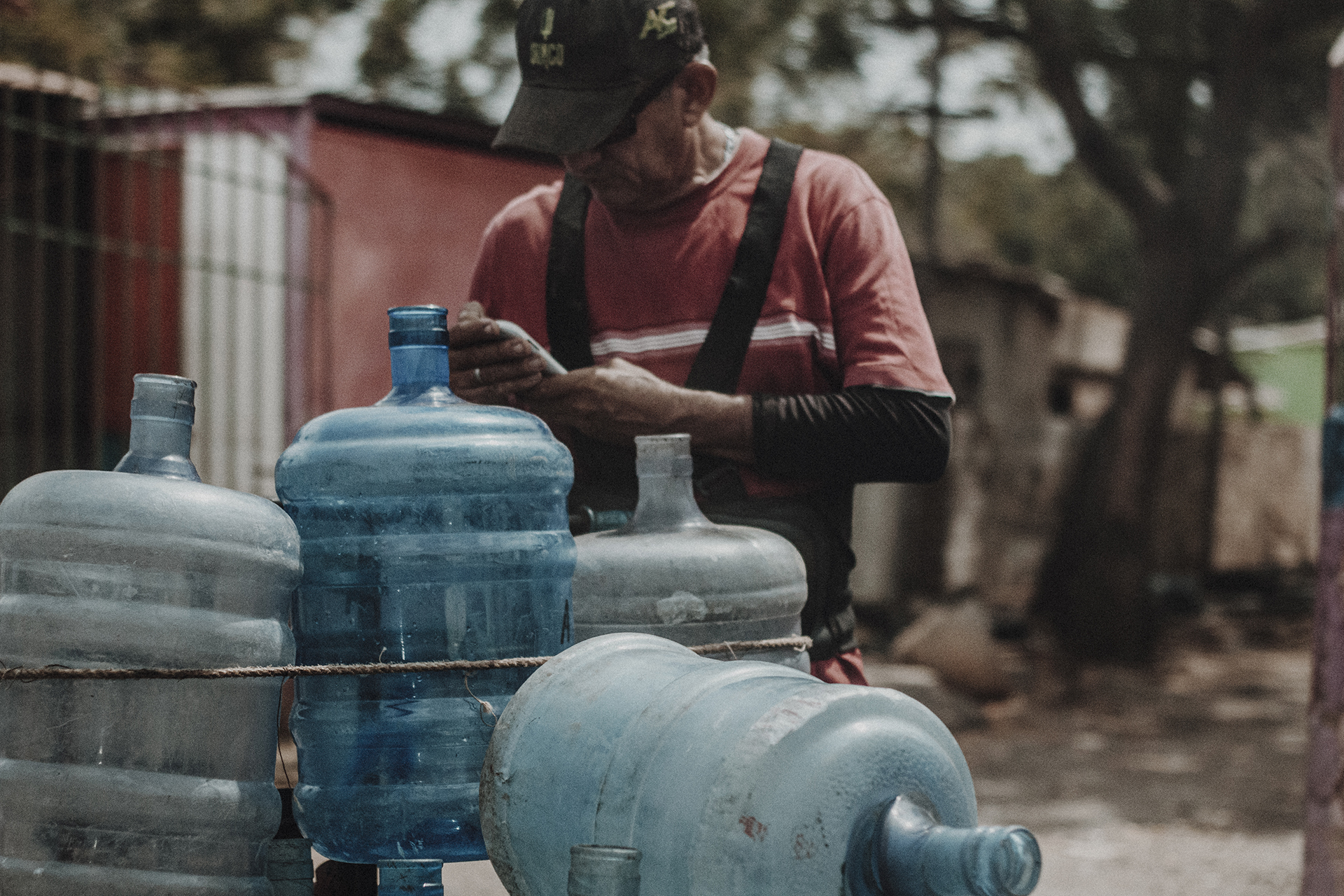
The search for cheaper alternatives leads people to hunt for places where informal vendors – usually in private homes turned into makeshift businesses – can refill large water canisters. This costs around $0.50 for nearly five gallons (or just under 20 litres). However, no one really knows where the water comes from or how clean it is, and it can be a major logistical challenge trying to transport these large canisters back home.
The water system has so many cracks and holes in the pipes that whenever the current does come, it’s like it’s raining from down below. You can tell when water is coming because suddenly large sections of the city get covered with puddles. Most cracks can be put down to the lack of maintenance, but some have been made by ordinary citizens. Desperate because water doesn’t reach their houses, they make their own holes so they can run it off into small containers and bottles.
On top of the gas and electricity shortages, the lack of water can often become too much for some people. It’s a domino effect, with every domino hitting you in the head one after another.
Despite all the suffering, I often see the citizens of Maracaibo living in defiance of their adversity. Not long ago, I was next to a line of queuing cars. Strangers were talking amongst themselves, laughing at something one of them had said. After the laughter, one man said, “this is the good thing about this fucking lines… you get to meet people”.
Financial indicators predict growth for the Venezuelan economy, not only for this year but for the next few. But when your economy has contracted by more than 70 percent since 2014, even the rosiest outlook falls short of bringing stability, let alone prosperity.
The best projections have Venezuela’s economy growing 20 percent this year, but those numbers would still leave the country with the worst GDP per capita in the Americas. That figure was mentioned by Credit Suisse, but it counted on the easing of international sanctions and the jumpstarting of the oil industry. It reminds me of the saying, “don’t count your chickens before they hatch”. Credit Suisse seems to be counting a lot of unhatched chickens.
I want to hope for the best, but when I see the lines of cars, all these faces up against such insurmountable odds, I can’t help but wonder: “Where’s the future? I just don’t see it.”
Edited by Paula Dupraz-Dobias.






